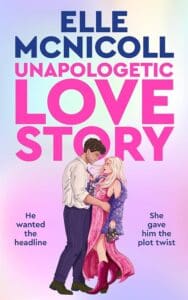
Synopsis
Riley has not seen a single human face in longer than she can reckon. No faces, no eyes. Not if you want to survive.
But when a new neighbor moves in down the road, Riley’s overwhelming need for human contact makes her throw caution to the wind. Somehow, in this world where other people can mean a gruesome, bloody death, Ellis makes her feel safe. As they grow closer, Riley’s grip on reality begins to slip and she can no longer fight her deepest desires.
All Riley wants to do is look.
Review
Sunny Moraine’s Your Shadow Half Remains does something I thought nearly impossible: it constructs a compelling psychological horror novel that is, at its heart, about the Covid pandemic.
Wait! Come back!
I know, I know. Believe me, I know. Literally no one wants to read about Covid. Stephen King’s most recent release, Holly, has taken endless abuse for simply acknowledging the existence of the pandemic in the setting of the novel, and I had similar feelings in the early going of Lucas Dumas’ The Paleontologist.
It’s too close, I suspect, especially as we find ourselves deep in the middle of 2020-era numbers once again. We’re supersaturated with it, and the mere mention of it is so polarizing and politicized that it can make for uncomfortable conversation. Also, time will surely show that we are, finally, all deeply traumatized by a global phenomenon that killed millions, disrupted our entire way of life, isolated us, and finally horrified us further by simply declaring “Mission Accomplished” and pretending that the horror was over.
And that, boys and girls, is the stuff that horror stories are made of.
So, first, let me say that Your Shadow Half Remains is not a Covid novel, except in all of the ways that it clearly is. Instead, we have, à la Bird Box, a mysterious “virus” that makes meeting another person’s eyes a deadly proposition. Such eye contact sends both people into murderous and/or suicidal rages. Overnight, the entire planet is transformed into an abattoir of brutal violence. Houses stand empty. Relationships dissolve. Supply lines falter. People retreat into near perfect isolation.
Sound familiar?
The brilliance of Sunny Moraine’s novella is that it spends remarkably little time working this allegory, or really focusing on the virus itself. The book isn’t interested in investigating the apocalyptic hellscape that is the post-pandemic world. Instead, it wants to investigate the effects of the ensuing isolation.
We meet our protagonist, Riley, as she is throwing her cell phone into the lake, one of many acts of self-isolation. She has moved herself out to her grandparents’ lake house after they succumb -in typically bloody fashion- to the virus. The only signs of life are occasional lights across the lake at night, and her only tether to the outside world is her computer, through which she keeps herself in food and supplies.
And then a stranger comes to town.
Ellis moves in down the block, and everything about the arrival of this new figure is both alluring (other people!) and terrifying (other people!), especially as Ellis seems to play fast and loose with protective protocols, seeming to put them both in constant danger of infection.
About the same time that Ellis arrives, Riley begins to experience strange events: ghostly visitors, bird attacks, sleepwalking episodes, and messages carved into her walls. In a world already made strange, the sense of irreality becomes overwhelming.
This horror is either tempered by or exacerbated by what appears to be a blossoming romance between Riley and Ellis, depending on the moment and depending on your point of view. And there’s something beautiful in these moments that reaches well beyond Covid allegories to say something about how precarious all life and all relationships truly are. Every love is a risk (especially as a woman). Every connection to another has the potential to be our undoing. This has always the case, and events such as the novel’s “infection” only underline the fact rather than alter it in any fundamental way.
Things do in fact take a turn for the worse, and blood is spilled, and what is real and what is not is called continuously into question. Is Riley an unreliable narrator? Of course she is. It’s almost a stupid question. Who could reliably describe a world gone mad?
Is she crazy? Infected? Well, there’s no real way to know, is there? The rules are unclear and ever changing.
What is clear, is that need for meaningful human contact is startlingly powerful, and as easy as the Bird Box comparisons may be, Your Shadow Half Remains owes more to P.D. James’ Children of Men, asking larger philosophical questions about what it means to be human, what it means to be endangered, and how we navigate the messy and often dangerous topography of the Land of Other People.
It’s a short book that refuses simple answers, with an ending that is by turns terrifying and hopeful, despairing and affirming. You won’t be able to look away.








Leave a Reply